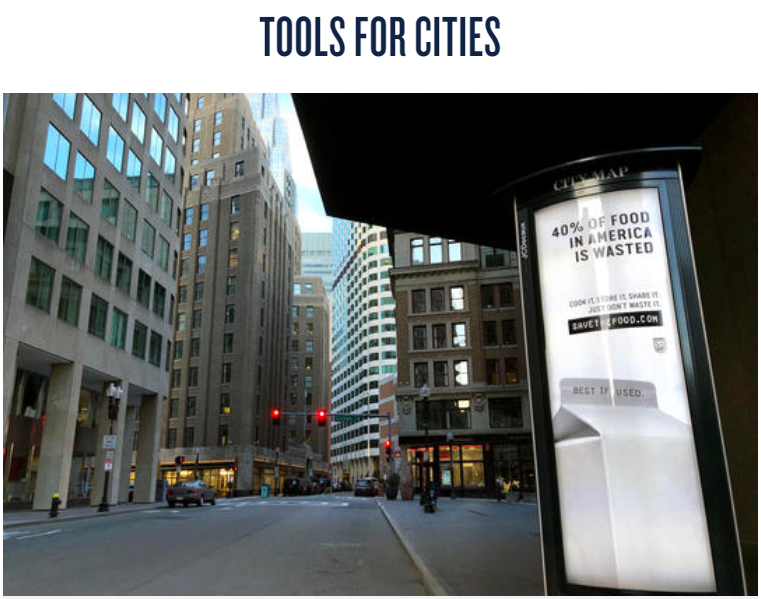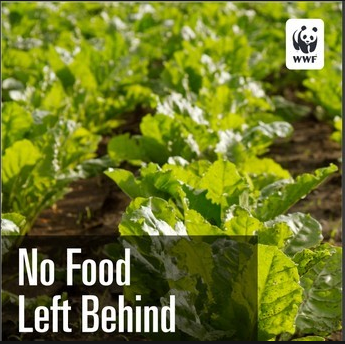NRDC is excited to announce the launch of a redesigned Food Matters webpage and a robust series of tools to help cities implement food waste reduction programs and policies.
Last February we launched our Policy and Program Toolkit, which provides cities and other partners with an understanding of the range of policy and program options they can use to reduce food waste, and to support informed decision-making about what strategies may be most feasible and effective in their communities. In order to help cities implement the strategies laid out in the toolkit, we drew on data and lessons learned from the deep partnerships in our model cities of Denver and Baltimore, as well as our work in Nashville, New York City, and other cities, to develop a wide array of guides and templates that are now available on the Food Matters website.
Here are some highlights of the exciting tools we have to offer, and you can see the full array at www.nrdc.org/foodmatters:
- Food Waste Strategic Communications and Partnership Guide: Once a community has selected strategies and developed a plan to tackle food waste, it should build support for that plan with both external and internal audiences. This guide provides a framework to guide how to build a communications strategy and community support.
- Food Waste Generation and Food Rescue Potential Baseline Calculator Guide: This tool provides an overview of the baseline calculator process, and tips to help cities communicate about the results of the calculator with city decision-makers and progress on to other toolkit strategies.
- Food Waste Progress Metrics Guide: Cities engaging in food waste initiatives are increasingly interested in assessing how effective those initiatives are, in order to determine where to allocate current and future resources for food waste policies and programs. This new guide builds on our toolkit and is intended to suggest to municipalities a wide range of potential metrics they can use to assess progress on food waste interventions, including both qualitative and quantitative metrics (with an emphasis on quantitative metrics that will more readily enable tracking progress over time).
- Food Waste Restaurant Challenge Guide: Some cities have successfully engaged restaurants and other sectors, including hospitality and retail, through food waste challenges that engage local businesses in adopting specific practices to reduce the amount of food going to waste, donate surplus food, and recycle food scraps. This guide to implementing a restaurant (or other business) food waste challenge is based on the models in Nashville and Denver and is intended to guide cities interested in adopting their own business food waste challenges. The full tool is forthcoming in winter 2020.
- Food Waste Public Education Guide: Effectively engaging the public about ways to reduce food waste in integral to ensuring successful food waste reduction efforts. This tool provides information on how cities can communicate food waste awareness and household prevention strategies to their constituents.
- Health Inspector Training for Food Donation Guide: Health inspectors are ideally positioned to dispel myths that prevent food donation, convey their city government’s interest in addressing food insecurity, and most broadly, communicate directly with licensed food facilities to ensure they have the information they need to donate food safely. This tool provides training materials to mobilize inspectors as ambassadors for safe food donation and share needed information with licensed food facilities about how to donate safely.
- Food Rescue Client Survey Guide: A core aim of our work in the food rescue space is ensuring that the voices of those who seek food assistance are integral to community dialogue about the future of a city’s food rescue system. This guide encourages cities to solicit input from end-users and provides practical, adaptable tools for doing so.
- Food Donations from Farms Guide: In many communities, there is a particularly acute need for donation of fresh fruits and vegetables and other farm-fresh products, beyond what is currently being donated. This guide shares lessons learned from engaging farmers in New York state and Nashville, and includes our Nashville farm survey instrument, Nashville farm survey results, and other resources.
This is just the start; we will continue to roll out tools on an ongoing basis and several are forthcoming before the new year! If you use the tools or have any feedback, we would love to hear it—please reach out to [email protected].



